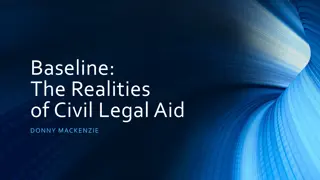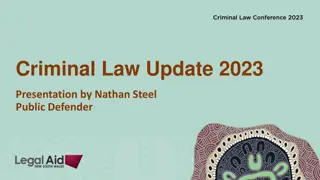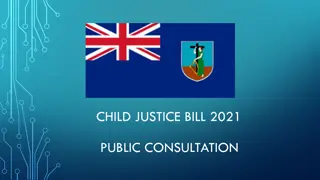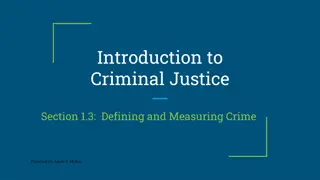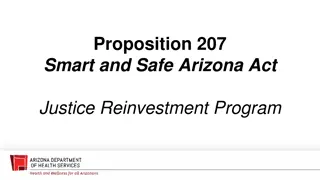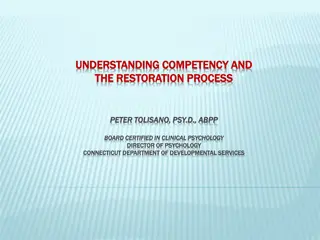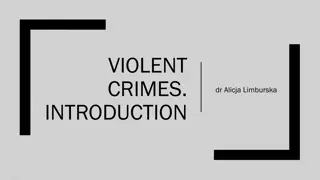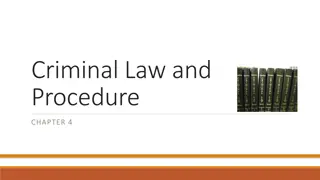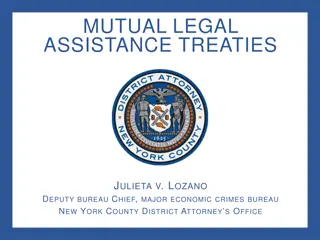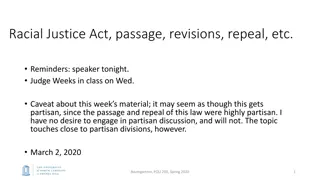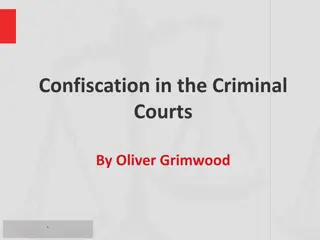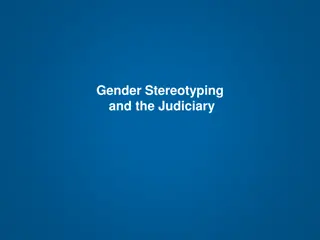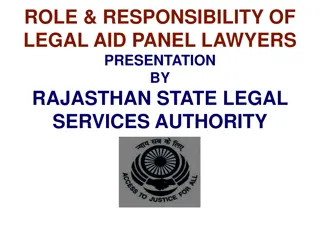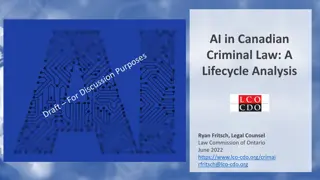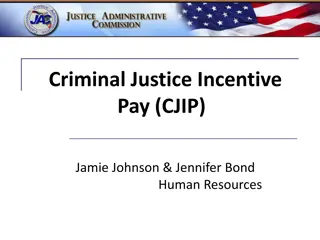Understanding the Criminal Justice System and Legal Procedures
The D.K. Basu guidelines lay down specific requirements for the arrest, detention, and interrogation of individuals by the police in India. These guidelines include the need for clear identification of police officials, preparation of arrest memos with witnesses, and the right of the arrested person to inform a relative or friend. The First Information Report (FIR) initiates police investigations into crimes, detailing essential facts and identifying accused persons and witnesses. The Public Prosecutor represents the State's interests in court proceedings following police investigations, conducting prosecutions on behalf of the state.
- Criminal Justice System
- Legal Procedures
- D.K. Basu Guidelines
- First Information Report
- Public Prosecutor
Download Presentation

Please find below an Image/Link to download the presentation.
The content on the website is provided AS IS for your information and personal use only. It may not be sold, licensed, or shared on other websites without obtaining consent from the author. Download presentation by click this link. If you encounter any issues during the download, it is possible that the publisher has removed the file from their server.
E N D
Presentation Transcript
CIVICS CIVICS LESSON 6 Understanding our Criminal Understanding our Criminal Justice System (Module Justice System (Module- -2) 2)
D.K Basu Guidelines The Supreme court of India has laid down specific requirements and procedures that the police and other agencies have to follow for the arrest, detention and interrogation of any person. These are known as the DK Basu guidelines and some of these include *The police officials who carry out the arrest or interrogation should wear clear, accurate and visible identification and name tag with their designations
*A memo of arrest should be prepared at the time of arrest and should include the time and date of arrest. It should also to be attested by at least one witness who could include a family member of the person arrested. The arrest memo should be countersigned by the person arrested. *The person arrested, detained or being interrogated has a right to inform a relative, friend or well-wisher. * When a friend or relative lives outside the district, the time, place of arrest and venue of custody must be notified by police within 8 to 12 hours after arrest.
First Information Report it is with the registration of an FIR that the police can begin their investigations into a crime. The law states that it is compulsory for an officer in charge of a police station to register an FIR whenever a person gives information about a cognizable offence. This information can be given to the police either orally or in writing .The FIR usually mentions the day, time and place of offence ,details the basic facts of the offence, including a description of the events .If known the Identity of the accused persons and witnesses is also mentioned. The FIR also states the name and address of the complainant. There is a prescribed form in which the police register an FIR and it is signed by the complainant. The complainant also has a legal right to get a free copy of FIR from the police.
What is the role of the Public Prosecutor? In court, it is the Public Prosecutor who represents the interests of the State. The role of the Public Prosecutor begins once the police has conducted the investigation and filed the charge sheet in the court. He/she has no role to play in investigation. The Prosecutor must conduct the prosecution on behalf of the state. As an officer of the court, it is his/her duty to act impartially and present the full and material facts, witnesses and evidence before the court to enable the court to decide the case.
What is the role of the Judge? The Judge is like an umpire in a game and conducts the trial impartially and in an open court. The Judge hears all the witnesses and any other evidence presented by the prosecution and defence. The Judge decides whether the accused person is guilty or innocent on the basis of the evidence presented and in accordance with the law. If the accused is convicted, then the judge pronounces the sentence. He may send the person to jail or impose a fine or both, depending on what the law prescribes.
What is a fair trial? The trial is held in an open court . The trial is held in the presence of the accused. The accused is defended by a lawyer . The defence lawyer gets an opportunity to cross examine all the prosecution witnesses and defence lawyer is given an opportunity to present witness. It is the responsibility of the prosecution to prove beyond reasonable doubt that the accused is guilty . Judge decides the matter only on the basis of evidence. The judge remains impartial.




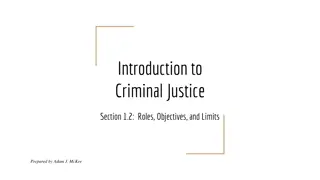


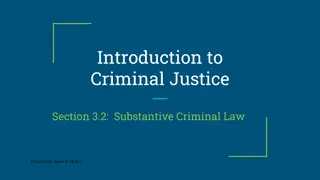


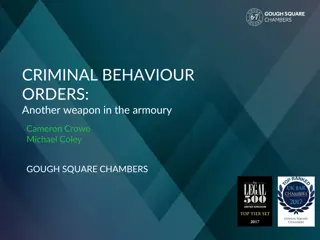
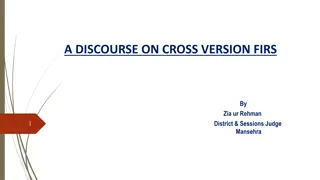

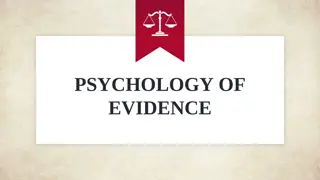
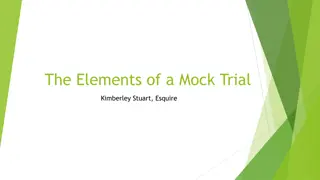
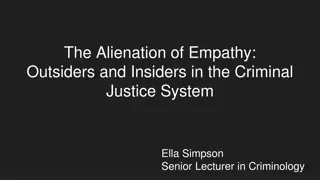

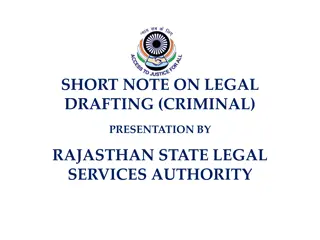


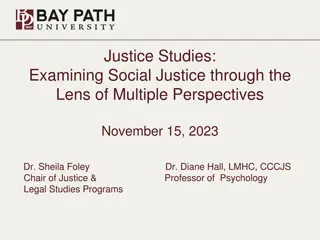
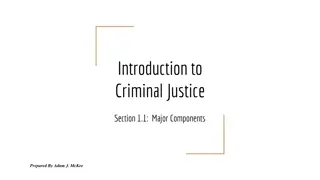
![Briefing on the Criminal Procedure Amendment Bill [B12-2021] to the Portfolio Committee on Justice and Correctional Services](/thumb/157093/briefing-on-the-criminal-procedure-amendment-bill-b12-2021-to-the-portfolio-committee-on-justice-and-correctional-services.jpg)
